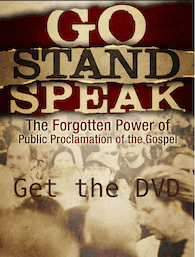Biblical mandate and current timeline
There is a multitude of Scripture that establishes a spirit of thanksgiving and praise to God, our Creator and Provider.
One OT example is; “If he offer it for a thanksgiving, then he shall offer with the sacrifice of thanksgiving unleavened cakes mingled with oil, and unleavened wafers anointed with oil, and cakes mingled with oil, of fine flour, fried. Besides the cakes, he shall offer for his offering leavened bread with the sacrifice of thanksgiving of his peace offerings. And of it he shall offer one out of the whole oblation for an heave offering unto the LORD, and it shall be the priest’s that sprinkleth the blood of the peace offerings. And the flesh of the sacrifice of his peace offerings for thanksgiving shall be eaten the same day that it is offered; he shall not leave any of it until the morning.” - Leviticus 7: 12-15
One NT example is; “In every thing give thanks: for this is the will of God in Christ Jesus concerning you.” - 1 Thessalonians 5:18
Recent Historical Time Line of Thanksgiving Observances:
· 1541 - Spanish explorer, Francisco Vasquez de Coronado, led a thanksgiving Communion celebration at the Palo Duro Canyon, West Texas.
· 1565 - Pedro Menendez de Aviles and 800 settlers gathered for a meal with the Timucuan Indians in the Spanish colony of St. Augustine, Florida.
· 1621 - Pilgrims and Native Americans celebrated a harvest feast in Plymouth, Massachusetts.
· 1630 - Settlers observed the first Thanksgiving of the Massachusetts Bay Colony in New England on July 8, 1630.
· 1777 - George Washington and his army on the way to Valley Forge, stopped in blistering weather in open fields to observe the first Thanksgiving of the new United States of America.
· 1789 - President Washington declared November 26, 1789, as a national day of "thanksgiving and prayer."
· 1800s - The annual presidential thanksgiving proclamations ceased for 45 years in the early 1800s.
· 1863 - President Abraham Lincoln resumed the tradition of Thanksgiving proclamations in 1863. Since this date, Thanksgiving has been observed annually in the United States.
· 1941 - President Roosevelt established the fourth Thursday in November as Thanksgiving Day.
"The Rock on which the Pilgrims disembarked is still shown [and] has become an object of veneration in the United States. I have seen fragments carefully preserved in several American cities. Does that not clearly prove that man's power and greatness resides entirely in his soul? A few poor souls trod for an instant on this rock, and it has become famous, it is prized by a great nation; fragments are venerated, and tiny pieces distributed far and wide. What has become of the doorsteps of a thousand palaces? Who cares for them?" - Alexis de Tocquevill
This passage, from Alexis de Tocqueville's classic book, Democracy in America, was written in 1835. That was more than two centuries after the Pilgrims first arrived at that cold and rocky spot on the Massachusetts coast in a dreary November, 1620. The place would become their Plymouth Bay Colony. Tocqueville's words show us that even after so long a passage of time, Americans in the 1800s still cherished the stories of their country's beginnings. Now, almost two hundred years after Tocqueville, the story of those early settlers should move us still.
Why did they come? They tell us plainly in the governing document they signed, the Mayflower Compact: "For the Glory of God and the Advancement of the Christian faith, and the honour of our King and Country." They wanted to worship the Lord in the way their consciences and their understanding of Holy Scripture led them, which included building a community in which they could daily live out their faith in Jesus Christ. They called their dangerous effort "an errand into the wilderness." Sadly, many of them died in that first terrible year. Hunger and disease took their toll. But the Pilgrims are honored because they did not give up.
When their little ship, the Mayflower, returned to England, not one of their little band abandoned the call. They called on God to sustain them. And they accepted the timely help of the Wampanoag Indians, especially the English-speaking Squanto. Without this help, they might all have died.
The story of Plymouth Rock also reminds us of the Israelites in the Old Testament. They would place standing stones in key places to help them remember how God had led them, how He had watched over them. The Pilgrims identified most strongly with the people of God in the Bible. There may never have been so highly literate a community. All the Pilgrims eagerly learned to read words so that they might read the Word.
This Thanksgiving is a good time to remind our children of the many blessings that Our Lord has showered upon us in the past year. Even in this time of war and of deepening economic hardships, the harvests of our fields are still abundant. Our people have been spared further terrorist attacks, and we passed through a hotly contested election without the violence that too often mars political conflict in less happy lands.
Most of all, we give thanks for the joys of family life. When we gather around a holiday table, the faith, love, and commitment of mothers and fathers, sisters and brothers bind our family circle. Let us also remember to give thanks to God for the brave young men and women who stand guard for us and our blood-bought freedoms in distant lands.
And let us resolve in this season to live as "living stones [who] are being built into a spiritual house." (1 Peter 2:4-5)
How To Do Good Works That Please God
10 years ago





comments
0 Responses to "America observes Thanksgiving - Part 4"Post a Comment